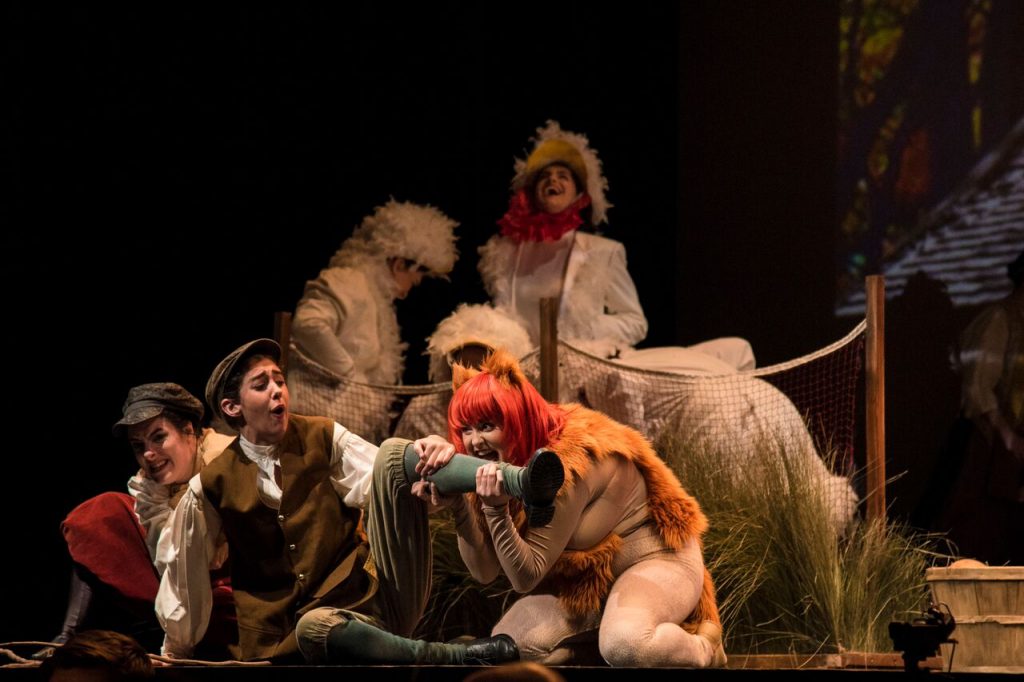
By Dennis D. Rooney
Leoš Janáček’s operas, particularly Jenůfa and Káťa Kabanová, have now become established repertory works, albeit still at the fringes. The Cunning Little Vixen, from 1924, is one of his most accessible. The composer based the libretto on a story first told in comic strip form in Lidové noviny, his hometown newspaper in Brno, the Moravian capital.
Titled Příhody lišky Bystroušky or Adventures of the Vixen Sharp-Ears, it had a story by Rudolf Těsnohlídek and drawings by Stanislav Lolek. It appeared toward the end of World War I and was later published in book form to great popularity. Janáček worked on his operatic setting from 1921-23. The first performance was on Nov. 6, 1924, at the National Theatre Brno.
However, it wasn’t until the 1950s that the work was heard much outside Czechoslovakia. Performances in English, first by London’s Sadler’s Wells (later the English National Opera) and the New York City Opera (where a memorable 1981 production with sets based on drawings by Maurice Sendak was conducted by Michael Tilson Thomas) have demonstrated an appeal to young audiences. Janáček intensified the pantheistic elements of the story that initially attracted him and combined Moravian folk songs and rhythms. The result was a celebration, at times poignant, of the cycle of life, rather like The Lion King, but far more important artistically.
The story centers on a vixen cub found by the forester, Bartoš, who brings it home as a pet, where she receives instruction from the family dog. Her escape (after killing a few chickens) and subsequent adventures are punctuated by scenes featuring village personalities such as the priest, schoolmaster and the poacher, as well as forest creatures like an owl, frog, squirrel and badger, whose den the vixen steals.
It becomes a trysting place when a dog fox happens by. The resulting fox family is scattered when Harašta, the poacher, shoots Sharp-Ears. The human characters soliloquize on the passage of time. Bartoš, lamenting what has been lost, falls asleep in the woods and is surrounded by the descendants of all the animals he knew.
Unfortunately, no synopsis was in the program booklet that I received July 2 when I saw this opera at the Miami Music Festival, at Barry University in Miami Shores, but there were supertitles of the sung English. The sets and costumes were handsome and the staging was simple but effective. That it lacked the darker tints the composer included in the libretto (especially in the original Czech) seemed no particular loss as the production was meant to be pretty and colorful.
Sets were by Yuki Izumihara, costumes by Patricia Hibbert, and the conductor was Bradley Moore, who led a well-prepared orchestra able to successfully negotiate Janáček’s unique instrumental textures, with only occasional evidence of fatigue. The danced parts were decorative. The singers all acquitted themselves worthily in a score with little in the way of conventional operatic singing.
Rebekah Lampman, as Sharp-Ears, was sprightly and appealing. Elizabeth Galafa, as the dog fox, Golden Mane, was suitably ardent. Baritone Andrew Nalley was an excellent forester, whose words were always intelligible even without the supertitles.
His scene with the poacher, sung by Cory McGee, stood out for its teamwork and effective vocalism. Justin Colón was an effective if hapless Badger. The children whom I saw in the audience were quiet and attentive, but there should have been more of them.